
Aktuelno
Članak
Covic's pact with Orban is an obstacle to EU path for BiH
Judging by his public appearance, HDZ BiH president Dragan Covic is the biggest advocate of European path for BiH.
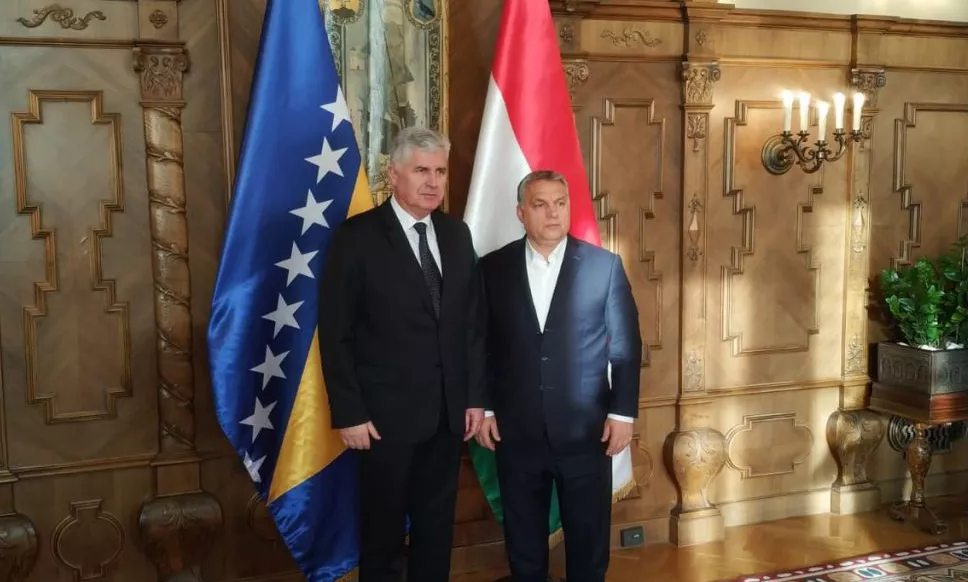
By: Haris LJEVO
Judging by his public appearances and speeches, HDZ BiH president Dragan Covic is the biggest advocate of European path for BiH. Covic is for EU indeed considering that Croatia is a part of it, the country he puts above his native BiH. However, the question is what kind of EU Covic envisages and with which allies.
The values that Covic and his party publicly uphold do not have a platform in any serious countries of the EU such as Germany, Austria, Netherlands, Belgium, Spain or Scandinavian countries. The values that Covic promotes can settle on fertile soil only in few European countries such as Hungary or Poland.
Dragan Covic met yesterday with Viktor Orban, the president of Hungarian government and the president Fidesz of the Hungarian citizen alliance, the man who continues to provoke strong reactions across the progressive parts of the EU because of his radical rightist stance and opinions – the man who will be the culprit if Hungary loses its voting rights in the EU.
Covic informed Orban about recently held general elections in BiH. He stated that, despite of plebiscitary support that the Croat people's assembly and HDZ BiH had won among Croats of Bosnia and Herzegovina, due to unconstitutional and undemocratic Election law, the Croats were yet again deprived of the seat in the Presidency BiH, said HDZ BiH in their press release regarding Covic's meeting with Orban.
One day after their meeting, the office of the head of European diplomacy, Federica Mogherini issued am official press release in which confirmed that the election process for the BiH presidency members was carried away in a legal and legitimate manner, and that the EU recognized the election results. Mogherini, therefore, sent a message that Covic was not right and that he could repeat his story about illegitimate election of Zeljko Komsic for the Presidency BiH as long as he wanted, but that would not yield any result for him.
Similar to Covic, the Croatian Prime Minister Andrej Plenkovic travels Europe, knocking on every possible door to convince anybody there in illegitimacy of the October elections in BiH. Plenkovic recently met with the French president Macron. After their meeting, Plenkovic stated that they had also discussed the BiH elections. However, the day later, Macron's office issued an official press release in which there was no mention whatsoever of BiH as the topic of their discussions.
A few days later, Plenkovic stated that his opinion about the election of Zeljko Komsic as 'betrayal of word and spirit of Dayton' was supported by the Hungarian prime minister Viktor Orban, the Bulgarian prime minister Boyko Borisov, the French president Emmanuel Macron, the Spanish prime minister Pedro Sanchez and the EU high representative for foreign politics Federica Mogherini.
Mogherini herself subsequently disagreed with Plenkovic's opinions several times, making it obvious that he could hardly count on her support.
Borisov and Orban are members of political parties which belong to the group of European People's parties (EPP), as well as Plenkovic's HDZ. When delegates of the European Parliament recently voted on the report about Hungary and Orban's violation of human rights, HDZ's delegates voted against the majority and gave their support to Orban.
That's why we should not wonder why Orban holds Plenkovic's opinion correct. However, when it comes to the Spanish Prime Minister Pedro Sanchez and leaders of other countries. Croatia did not get the support as they have almost nothing in common with Plenkovic.
A few months ago, the European Parliament voted for activation of the Article 7 of the EU agreement against Hungary because of its antimigrant politics, which could lead to depriving this country its right to vote in all the EU institutions. Hungary has strayed away from its liberal path, so the European censure for violation of rule of law is well justified, report the world media.
- From the moment the prime minister Viktor Orban established a stable 'illiberal state', creating a division between state control and balance, inserting his loyalists into constitutional court thus creating a pattern for other extreme right leaders to follow, a powerful group of European politicians made a note of that yet did not say anything, wrote New York Times.
Leader of conservative political parties in Europe abstained from stopping him, mainly because he was the part of their coalition in Brussels and because they thought they could control him. European politics in Brussels is led between rival coalitions of people’s parties. European People's Party is a right-center alliance which has the largest group of lawmakers at the European Parliament and it exerts big influence over other European institutions. Many leaders in the coalition, such as Merkel, are considered bearers of the European democracy, and its founders were also the founders of the European project.
New York Times also wrote that Orban suggested that, unless the coalition saw changes, he could form an extreme right alliance to fight at next year's European parliamentary elections.
- There is a plethora of accusations against Orban's government – for heavy pressure it puts on civil society and independent media, undermining of the judiciary, alleged corruption, attacks on minority rights, ill treatment of asylum seekers and refugees, writes Washington Post.
The Hungarian leader, ultranationalist and antimigrant fanatic, does not hide his negative feelings towards liberal values of the European Union. While his party, Fidesz, is a member of the EPP, Orban has found common interests with Europe's far right.
World media write about two sides in Europe; one is led by the French president Emmanuel Macron who support migrations and the other one supported by the countries that wish to protect their borders. Hungary and Italy are in this other group.
- The progress of the far right across the continent, as well as the potential for forming strong relations between extreme right leaders – have provoked visions of a stronger right populist bloc that could exert strong influence in the EU. Some critics suggest that Orban's instilling fear of Muslims is a useful shield that helps him conceal the actual effectiveness of his government – a consolidation of power that looks like authoritatism which freaks you out, and that enabled widely present corruption, writes Washington Post.
Croatia is a reliable partner to Hungary due to their common border, economic cooperation, as well as strong influence of radical right wing.
It should be emphasized that Serbia's first person Aleksandar Vucic also does not hide his sympathies for Hungary and Orban.
Dragan Covic and Milorad Dodik has been partners in BiH for years and get to share common interests and similar opinions about the situation in BiH. They both live and work in BiH, they are paid by BiH, while they protect interests of the neighboring countries Croatia and Serbia so one should not be surprised by their benevolent attitude towards Orban's Hungary and the right European bloc in general.
Therefore, there's Covic who is all for European path for BiH but the one that leads across Zagreb and Budapest, while majority of BiH citizens are also for the EU but via Vienna, Berlin, Paris to Brussels. This liberal and progressive Europe led by Macron, Merkel, and Mogherini is much closer to BiH, but their standpoints are not shared by Covic and HDZ.
To conclude, it is now more important than ever before to help the political forces which will take this country towards EU majority, and not the ones openly promoted by Orban fully supported by Plenkovic and Covic.
#English
Najnovije

Suljagić i Memorijalni centar Srebrenica osudili govor mržnje na jučerašnjem mitingu u Banja Luci
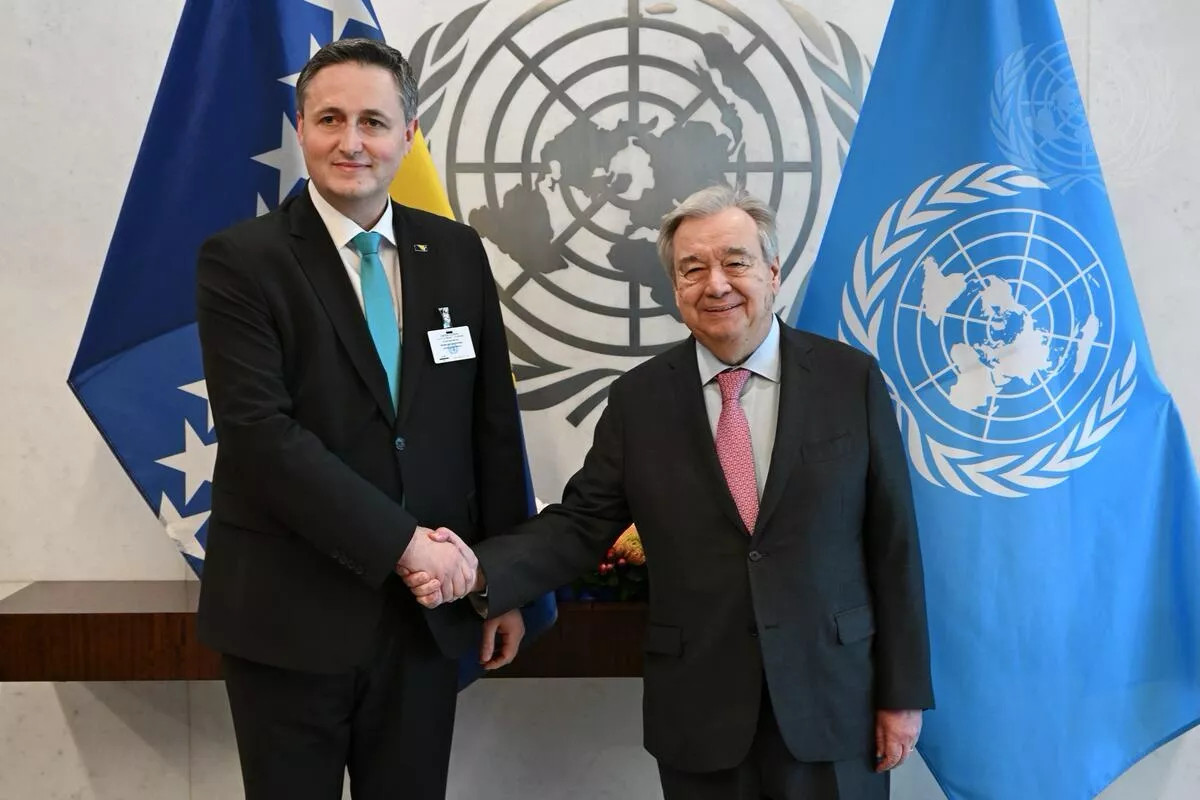
Bećirović i Komšić razgovarali s generalnim sekretarom UN-a Gutteresom: Neprihvatljiv je bilo kakav oblik negiranja genocida
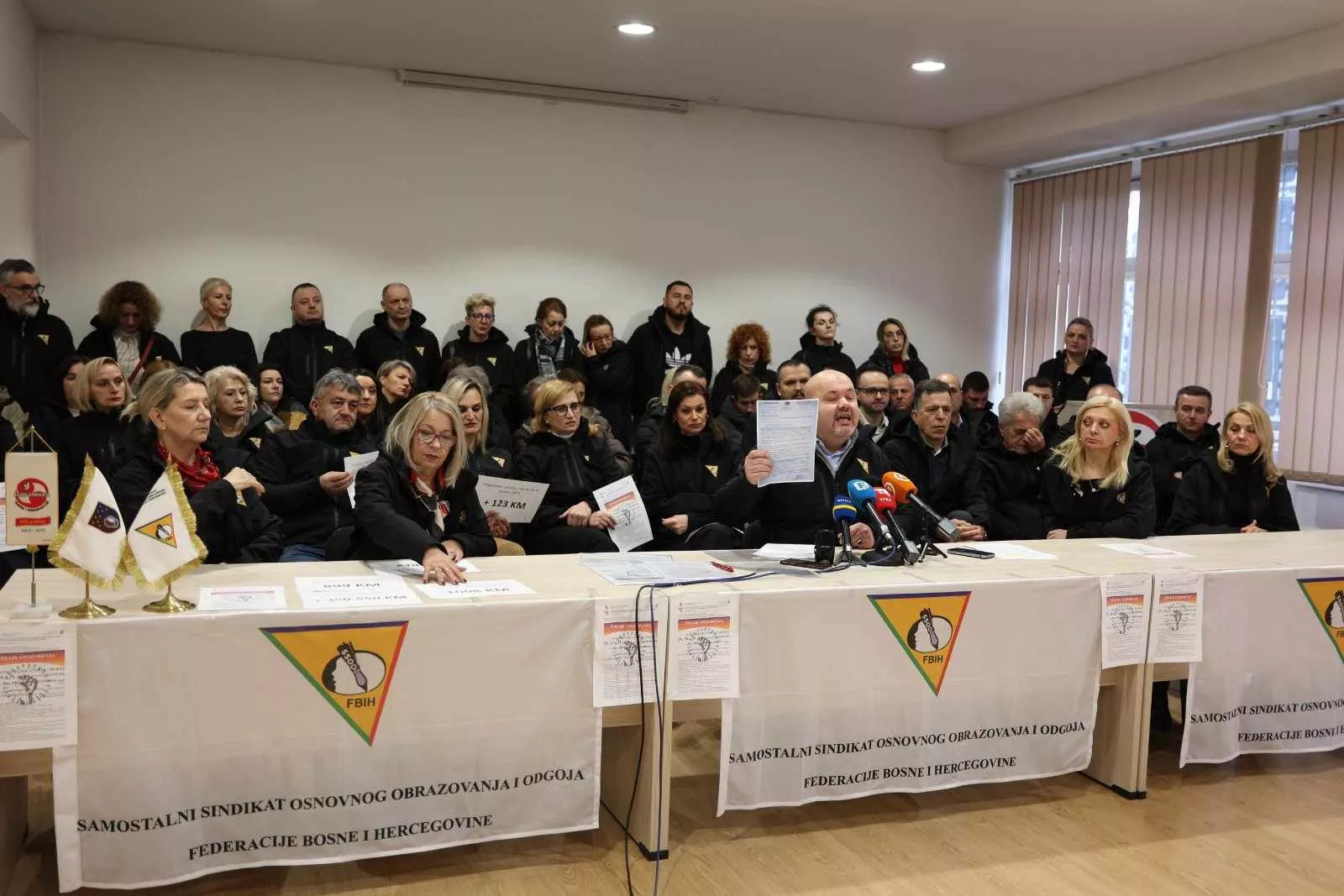
Sindikat danas donosi odluku o metodama dalje sindikalne borbe, Vlada KS odbija dijalog i traži prekid štrajka

ABC News: Izrael napao ciljeve u centralnom dijelu Irana

Barbarez danas preuzima selektorsku palicu Zmajeva
Najčitanije
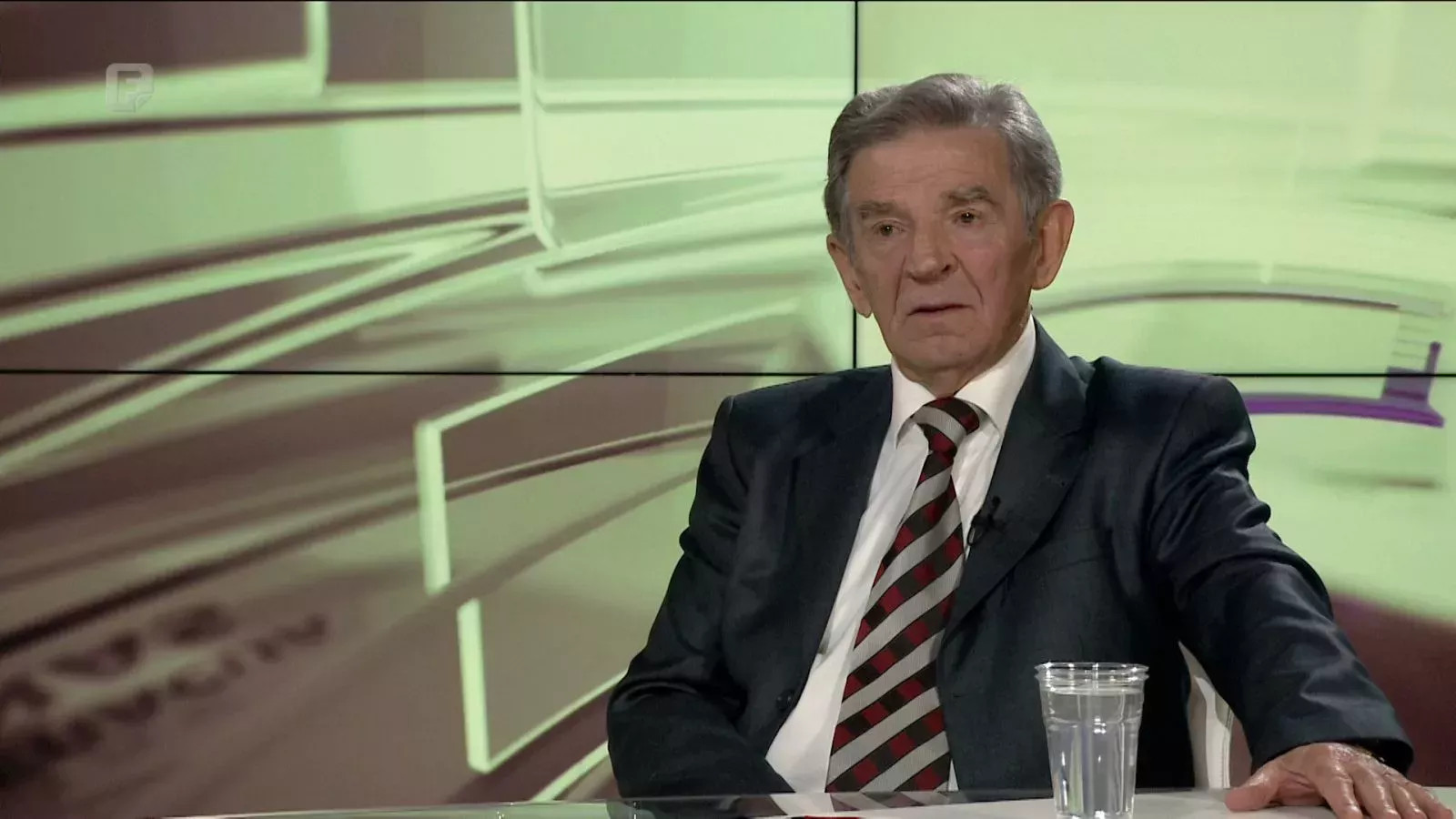
Duraković: Zašto je panbošnjački sabor krupna politička greška, izuzetno štetna za Bošnjake
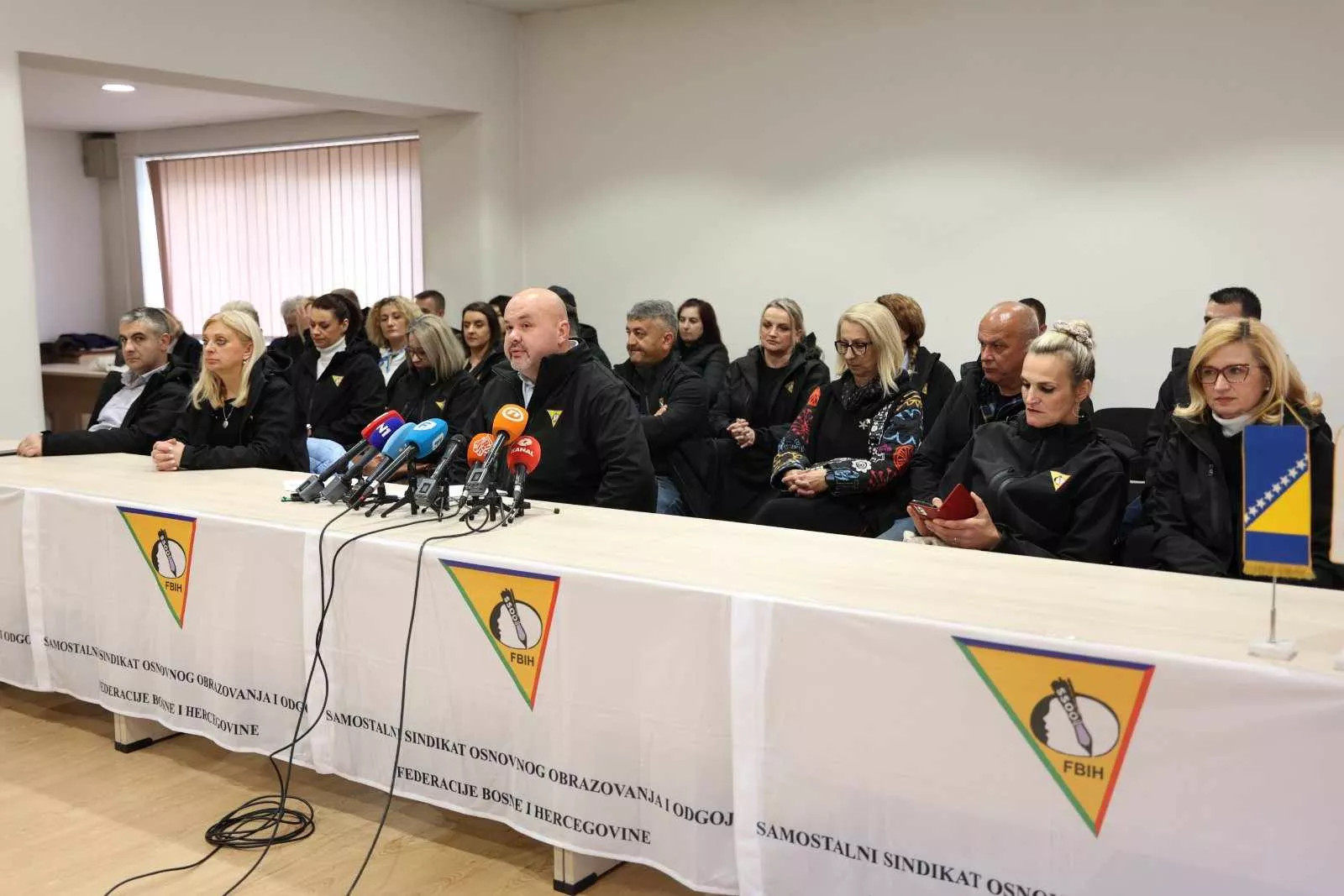
Sivro: Vlada KS ruši obrazovanje, ministrica želi da zna imenom i prezimenom ko štrajkuje

VIDEO Na ulazu u Ahmiće postavljen plakat sa natpisom 'Oprostite u ime građana Republike Hrvatske'

Golob uvjeren da samo on i Janković vladaju politikom: Vučić kadrovik pokreta Svoboda, Banjaluka osvaja Ljubljanu!
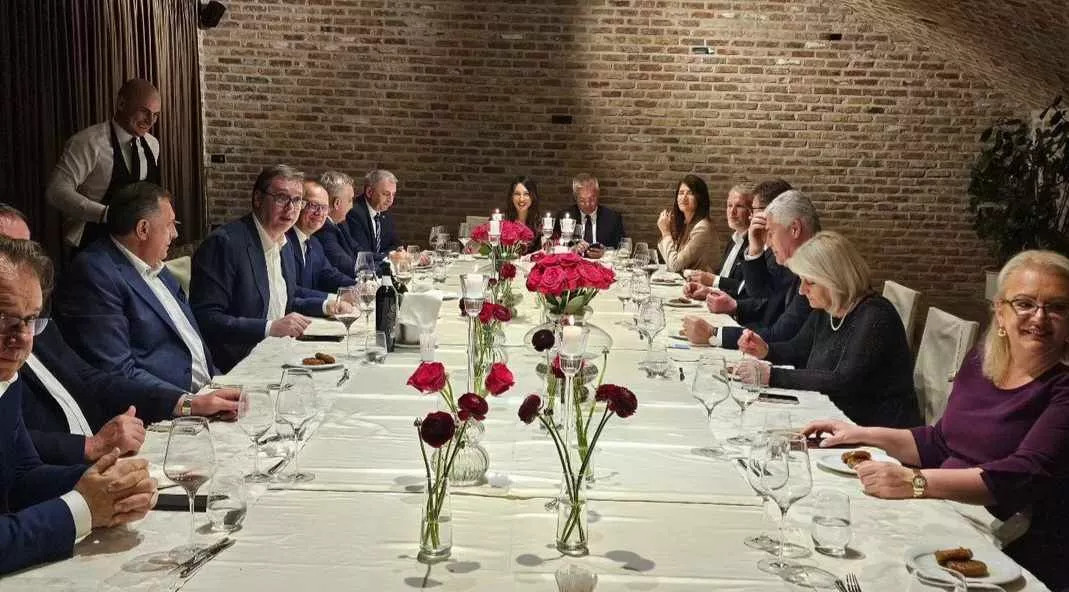
Nikšić u ćošku stola i slike: Nermin izviruje karte 'srpskog sveta' i 'banovine Hrvatske' i daje im legitimitet!
